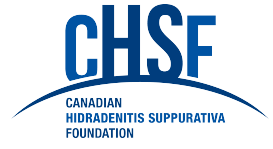Table of Contents
What is the best treatment for hidradenitis suppurativa?
As an advocate and resource for those battling Hidradenitis Suppurativa (HS), we understand that ‘best’ can be relative when it comes to treatment. It often depends on the severity of the condition and the individual patient’s circumstances. A multi-disciplinary approach to treat hidradenitis suppurativa typically yields the most effective results. This includes medical treatments like antibiotics for infection and inflammation, hormonal therapies, and biologics such as adalimumab for more severe cases. We’ve seen many patients experience significant relief through a combination of these medications, along with lifestyle modifications and surgery when necessary. But I must emphasize, each person’s journey is unique, and it’s crucial to work closely with healthcare providers to determine the optimal treatment plan for you.
How I cured my hidradenitis suppurativa?
Frankly speaking, there isn’t a one-size-fits-all cure for HS at present, and individual experiences can vary greatly. Some members of our community have seen remission through comprehensive management plans that combine medications, surgery, and lifestyle changes. It’s about finding what works for you, which might include avoiding triggers known to exacerbate HS, adopting anti-inflammatory diets, and making other healthy lifestyle choices. Remember, managing this condition is a marathon, not a sprint, and it requires patience, persistence, and partnership with your care team. If you manage to find yourself symptom-free, it’s a victory worth celebrating and sharing to inspire others.
What triggers hidradenitis suppurativa?
HS can be quite perplexing due to its unpredictable behavior, but certain factors are known to trigger flare-ups. Hormonal imbalances, stress, and lifestyle factors such as smoking and obesity are common culprits. Additionally, skin friction in sensitive areas can provoke symptoms. Identifying your personal triggers can be an empowering step in managing HS, as it allows you to take charge and modify your behavior to help reduce the frequency of flare-ups. Have you noticed any specific patterns or triggers that affect your HS? Discussing these with your dermatologist can lead to a better-tailored treatment plan.
What makes hidradenitis worse?
Several factors can exacerbate HS, from lifestyle choices to environmental factors. Smoking and excessive weight are two significant factors that not only make symptoms worse but can also hinder treatment effectiveness. Furthermore, excessive sweating, tight clothing, and even shaving can aggravate the affected areas. It’s crucial to be mindful of these factors and take steps to mitigate them. For instance, choosing loose-fitting clothing and adopting gentle skin care routines can make a considerable difference. Have you experienced worsening of your HS symptoms due to any of these factors? Let’s explore how we can modify your routine to help with hidradenitis suppurativa management.
Resources Section
- Centers for Disease Control and Prevention (CDC): The CDC provides information on public health, disease prevention, and health education. www.cdc.gov
- World Health Organization (WHO): This is the United Nations’ specialized agency for international public health. www.who.int
- National Institutes of Health (NIH): The NIH is part of the U.S. Department of Health and Human Services and is the nation’s leading medical research agency. www.nih.gov
- United States Environmental Protection Agency (EPA): The EPA is responsible for the protection of human health and the environment. www.epa.gov
- American Psychological Association (APA): The APA is a scientific and professional organization representing psychology in the United States. www.apa.org
- National Science Foundation (NSF): The NSF is an independent federal agency that supports fundamental research and education across all fields of science and engineering. www.nsf.gov
- United Nations Educational, Scientific and Cultural Organization (UNESCO): UNESCO seeks to build peace through international cooperation in Education, the Sciences, and Culture. www.unesco.org
- U.S. Food and Drug Administration (FDA): The FDA is responsible for protecting public health by ensuring the safety and efficacy of drugs, vaccines, medical devices, and food products. www.fda.gov
- United States Department of Agriculture (USDA): The USDA provides leadership on food, agriculture, natural resources, and related issues. www.usda.gov
- National Aeronautics and Space Administration (NASA): NASA conducts important research and development in space exploration, as well as Earth and space sciences. www.nasa.gov
- The Library of Congress: As the largest library in the world, it offers a wealth of resources and research tools. www.loc.gov
- United States Geological Survey (USGS): The USGS provides reliable scientific information to describe and understand the Earth. www.usgs.gov
- National Oceanic and Atmospheric Administration (NOAA): NOAA is an agency that enriches life through science focusing on the conditions of the oceans and the atmosphere. www.noaa.gov
Treat Hidradenitis Suppurativa Treatment for Hidradenitis Suppurativa Hidradenitis Suppurativa Management



